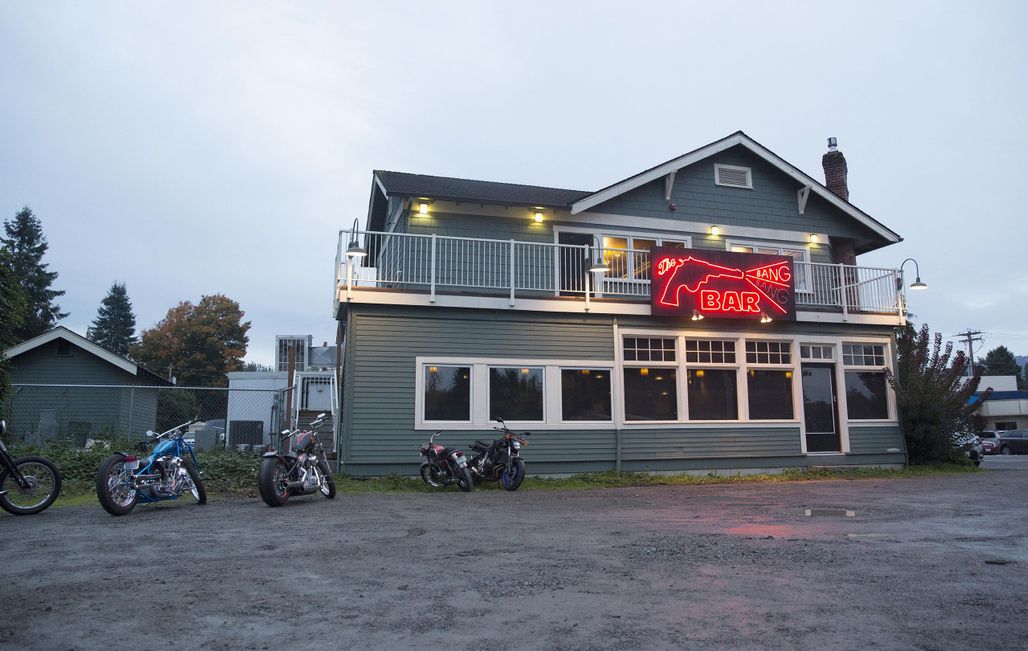
Twin Peaks: the “damn good” return of a cult series

Twenty-five years after giving up its last secrets, David Lynch's masterpiece returns for a third, previously unseen season with some of the original cast. This unexpected return to centre stage for FBI agent Dale Cooper and the mysterious Twin Peaks forest has also brought the filmmaker back into the limelight.
A mystical interview with the great man.
Was this return to Twin Peaks lodged in your subconscious, as is hinted in the last episode, aired twenty-five years ago?
Perhaps in my subconscious, but certainly not consciously. In my mind, I had put a final full stop to the series. But I always believed I would never stop thinking about Twin Peaks over the years, to wonder about its plot and to imagine what could actually happen to its characters. The idea of a new project based around the series came to me five years ago.
What exactly made you want to dive back into its maze of mysteries?
The only way I can explain this return is the love I have for that universe. Suddenly, revisiting Twin Peaks seemed to me the best thing I could do. This third season coincides almost exactly with the date Laura Palmer makes with Dale Cooper in the last episode that was aired. I know that there are many theories circulating on the internet about a follow-up planned twenty-five years ago, but my only consideration was my love for the Twin Peaks universe.
Writing the script took three years. How did you and Mark Frost go about it?
We met occasionally, but most of our collaboration was on Skype. We gradually created eighteen episodes which, from our point of view, make up an eighteen hour film divided into eighteen parts. We didn't have any problem at all diving back into the world of Twin Peaks. Working on the series again was, for me, a wonderful journey along a pleasant road, from beginning to end.
At what point did the tone of the plot establish itself?
We considered the flavour we wanted to give this third season all the way through the process of making it. Each of the locations chosen for filming gave the series a particular atmosphere through its details, its light, its acoustics and the behaviour of the individuals who live there. All of these perceptions produced ideas; the most important thing for us was to stay faithful to them.
What new narrative elements does this new season include?
The storytelling remains the same, but the tools for doing it have changed. The first two seasons were shot on film. This time we shot digitally. So I used all the available technical means possible to bring my ideas to life. In the early years of cinema, directors had to deal with certain technical constraints, but they managed to tell their stories with the means they had available.
“What’s the weather like at Cannes? Not a wisp of fog? No mystery on the horizon? In that case, let us bring you a little…”
Could you say a few words about the 35mm/digital debate?
Digital and 35mm each have their advantages and disadvantages, but nothing will ever be as wonderful as film. Having said that, digital is getting better every day and its finish already looks very good. It allows the director to keep a huge amount of control over his or her film.
The cast brings together more than 200 actors. Weren't you afraid of spoiling the series?
There is a risk waiting on every street corner, but you mustn't think about that; you have to go where the ideas take you. The greatest challenge we must always face as artists is to build each piece of our work in the best way possible and to never deviate from our final goal until we get there. The plot of this story needed a cast that big.
How important is the feature film Twin Peaks, Fire Walk with Me, to understanding this sequel?
The audience does not need to have seen the two preceding seasons, or the feature film, to get the new plot. On the other hand, the process will be easier for those who are familiar with them, because they will have more information to help them understand.
“I did not say I would stop making films”
What does this new season of Twin Peaks say about the man you are today?
You can tell me what kind of man I've become after you've seen it!
Does Twin Peaks really mark the end of your filmmaking career, as you announced?
No. My comments were misquoted. I did not say I would stop making films, just that no one knows what the future holds.
So can we expect Laura Palmer and Dale Cooper to surface again in twenty-five years?
If they do, I will really be very old; but I'm sure I'll still be working!


